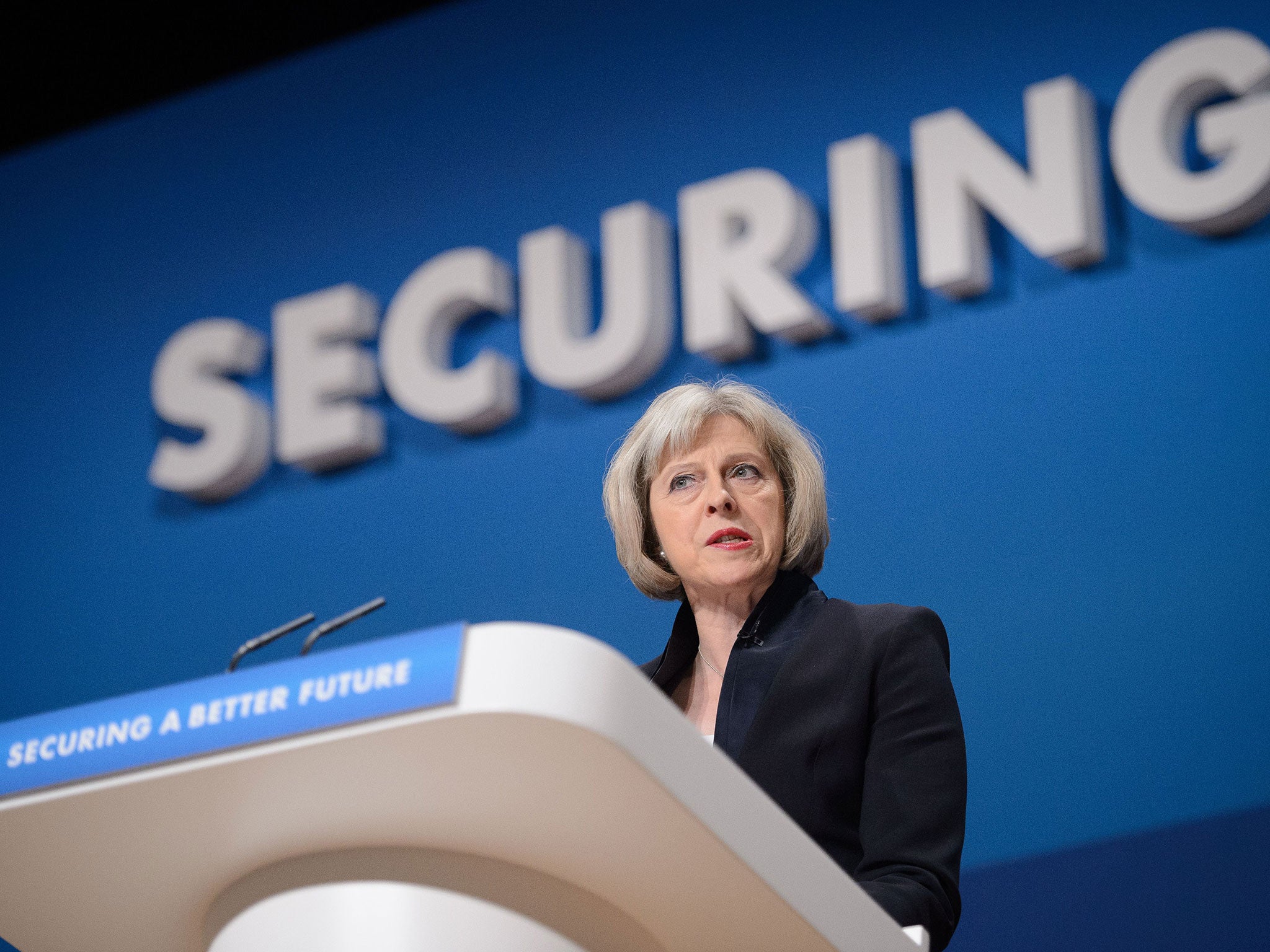Anti-terror Bill: Teresa May criticised for producing ‘a chilling recipe for injustice’
Bill includes measures to compel schools to prevent radicalisation and prevent jihadists from returning to UK

Your support helps us to tell the story
From reproductive rights to climate change to Big Tech, The Independent is on the ground when the story is developing. Whether it's investigating the financials of Elon Musk's pro-Trump PAC or producing our latest documentary, 'The A Word', which shines a light on the American women fighting for reproductive rights, we know how important it is to parse out the facts from the messaging.
At such a critical moment in US history, we need reporters on the ground. Your donation allows us to keep sending journalists to speak to both sides of the story.
The Independent is trusted by Americans across the entire political spectrum. And unlike many other quality news outlets, we choose not to lock Americans out of our reporting and analysis with paywalls. We believe quality journalism should be available to everyone, paid for by those who can afford it.
Your support makes all the difference.The Government faced criticism from civil liberties campaigners last night after it outlined a raft of new anti-terrorism measures to confront what it described as the greatest threat “before or since” the 9/11 attacks on the US.
Theresa May, the Home Secretary, outlined plans for a new law that threatened schools and universities with legal action if they failed to address child radicalisation or ban extremists from preaching on campus.
The new counter-terrorism Bill – which will also include plans for increased powers to relocate terror suspects around the country, and prevent insurers from funding ransom payments to terrorist groups – was criticised by campaigners who described it as a “chilling recipe for injustice”.
Ms May presented a picture of a “struggle on many fronts” posed by extremists, and revealed that 40 plots had been disrupted since the 2005 attacks on the London transport network. She said that the danger of a domestic attack was greater than it had ever been and she would seek to block foreign fighters from returning to Britain. “This legislation is important and the way in which it has been developed is right,” she said. “It is not a knee-jerk response to a sudden perceived threat.”
After a bruising battle within the Coalition over a so-called “snooper’s charter”, new proposals on allowing police and security agencies the powers to identify terrorism suspects using online data held by internet service providers have been backed by the Liberal Democrats.
The Government said that it intended that the legislation would be passed before the election, as police claimed yesterday that terrorist groups had learnt from the Snowden revelations and had changed the way they communicate.
The proposals come as senior police said that the threat of domestic attack by radicalised Britons and returning fighters from Syria and Iraq was likely to continue for years.
But some groups said that they threatened further to alienate young British Muslims and increase the risk of attack. Amnesty International said it appeared the measures were being fast-tracked without allowing proper time for parliamentary scrutiny.
“Yet again politicians resort to rushed legislation in an attempt to look tough in the face of terrorism,” said Shami Chakrabarti, the director of the rights group Liberty. “Even our universities must read from ministers’ scripts on radicalisation. Another chilling recipe for injustice and resentment by closing down the open society you seek to promote.”
Teaching unions expressed concern at growing pressures on the education system with the legal requirement for schools, prisons, and councils to have programmes to stop people being drawn into terrorism. The Independent revealed last week that one of the country’s most successful schools was put into special measures for failing to monitor the activities of a sixth-form Islamic Society.
“Schools definitely have a role to play, as they protect children they also protect the neighbourhoods they serve but they are not a police service,” said Russell Hobby, the general secretary of the National Association of Head Teachers. “A school’s main contribution to the cause of anti-extremism is to provide a broad and balanced curriculum in a safe environment where human rights are respected.”
Join our commenting forum
Join thought-provoking conversations, follow other Independent readers and see their replies
0Comments